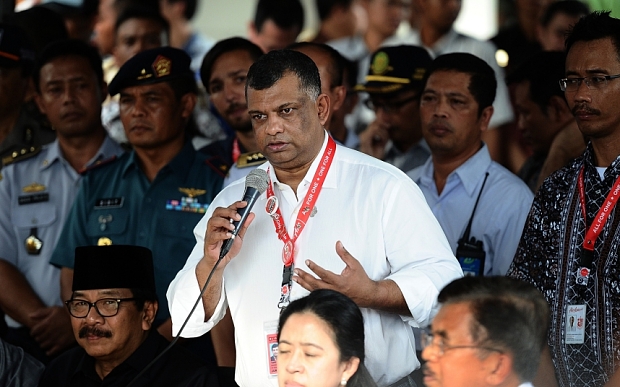 Figure 1: The multifaceted elements surrounding ethics (Thing Link 2015)
Figure 1: The multifaceted elements surrounding ethics (Thing Link 2015)
Since the Enron scandal in 2001, several schools of thought have emerged on the need for ethics within organisations, especially at the levels of leadership. What, however, is ethical leadership and how does it positively affect leaders and organisations?
In addressing this, we review the two principle theories of ethics as highlighted by Mullins and Christy (2013) – Deontological, or rules; and Teleological, or consequences.
In brief, Deontological looks chiefly at the duties levied on individuals and actions which uphold moral law (Kant 1785); whilst Teleological takes a utilitarian approach of the means being justified by the end. In their works, Bentham (1789) and Mills (1861) opined that it was ultimately the consequences of human actions that resulted in their moral value.
Two ideas are put forward at this point. One, while these theories were introduced centuries ago, they accurately highlight the responsibility individuals have towards the larger society. Two, on closer inspection of the quote presented by Rubin et al (2010), both theories come together through “normatively appropriate conduct”, which today are governed by the moral codes expected by society, as well as “personal action”, which supports the idea of consequences.
It is my opinion that in today’s context, ethical leadership cannot just be confined to one specific principle, but encompasses both to a degree, that is: moral code and the realisation of consequences stemming from one’s actions. Modern day scholars further define these principles through their models of leadership.
Yukl (2010) puts forward the notion that ethical leadership depends on the practical actions of individuals which conform to suitable moral principles, while Mullins and Christy (2013) define ethical leadership as the ability to determine between right and wrong. It is suggested that both combine the idea of fixed moral laws and the experience gained from past consequences.
The crux of ethical leadership, however, lies in the second part of the definition presented by Rubin et al (2010), that is, “the promotion of such conduct to followers” and the “positive effects” felt by individuals and the organisation.
In analysing these components, let us review the aviation industry, which contains a number of laws governing conduct, and is steeped in dire consequences stemming from unethical behaviour.
Since 2014, Qatar Airways has been criticised for a number of unethical issues. As recently as 2015, the International Trade Union Confederation and the International Transport Workers’ Federation filed a report with the International Labour Office on violations falling under the Geneva Convention (ILO 2015).
 Figure 2: Qatar Airways’s promotional image (Armtimes 2016)
Figure 2: Qatar Airways’s promotional image (Armtimes 2016)
The report detailed a number of jarringly unethical laws imposed on employees, in particular women flight attendants. These included the right for Qatar Airways to immediately terminate any female employee who becomes pregnant, and the barring of their right to marry. The later incident resulted in eight incidences of crew members resigning from their posts following false promises made by the airline’s CEO, His Excellency Mr. Akbar Al Baker, and being denied re-entry into the country (ILO 2015).
The report further highlighted the confinement of attendants to airline premises 12 hours before their flights, and impositions on their social media activities (ILO 2015). These issues became so significant to the public that a petition was raised requesting the world champion football club, FC Barcelona, to drop its sponsorships (The Telegraph 2015).
 Figure 3: Messi in Qatar Airways Barcelona shirt (The Telegraph 2015)
Figure 3: Messi in Qatar Airways Barcelona shirt (The Telegraph 2015)
A recent blog published by Huffpost Business (2016), also emphasised the unfair benefits received by Qatar Airways in expanding into new markets. Due to a lack of transparency in Qatar Airways’ financial reporting, the benefits were only uncovered after a “painstaking investigation” (Huffpost Business 2016). The same concern around transparency and unfair competition was raised in Forbes (2015).
These reports are evidences of unethical leadership as it reflected the conduct and decision making of the CEO, his senior management and perhaps, more alarmingly, the government of Qatar who sanctioned many of his actions (Huffpost Business 2016).
In comparison, AirAsia, which approaches its 15th year (Airasia 2016), still prides itself on a leader who is renowned for his approachable attitude towards all staff (Kamisan and King 2013), and took personal responsibility when flight QZ8501 went missing (Forbes 2014). His exceptional leadership and success has been highlighted across many platforms including Adecco Group Asia’s publication on “What It Takes To Become a Great Leader in 2015”, and his contribution in developing entrepreneurship through the AirAsia Foundation (The Star 2015).
 Figure 4: Tan Sri Tony Fernendes speaking to the families of victims of QZ8501 (ABC News 2014)
Figure 4: Tan Sri Tony Fernendes speaking to the families of victims of QZ8501 (ABC News 2014)
In analysing these two examples, one agrees with Rubin et al (2010)’s statement of the influence leaders have through demonstrating ethical leadership and its impact within and beyond an organisation. Clearly we see that where ethics governs a leader’s actions, employees and society view it favourably in spite moments of crisis, as opposed to impressive profits laced with unethical practices.
REFERENCES
1.Adecco (2014) The Leadership Paradigm: What It Takes to Become a Great Leader in 2015 [online] available from <http://adecco.com.hk/upload/adecco_knewsfs11411104745103471.pdf> [30 January 2016]
2. BBC (2014) Ethics Guide [online] available from <http://www.bbc.co.uk/ethics/introduction/duty_1.shtml> [30 January 2016]
3. Britton, R. (2016) ‘Bullying in the Airline Business?’. Huffpost Business [online] 27 January. available from <http://www.huffingtonpost.com/rob-britton/bullying-in-the-airline-b_b_9081054.html> [30 January 2016]
4. Edwards, T. (2015) ‘Petition calling on Barcelona to drop shirt sponsor hits 40,000 in 24 hours’. The Telegraph [online] 10 July. available from <http://www.telegraph.co.uk/sport/football/teams/barcelona/11731733/Petition-calling-on-Barcelona-to-drop-shirt-sponsor-hits-40000-in-24-hours.html> [30 January 2016]
5. International Labour Office for the Geneva Convention (2015) Ninth Supplementary Report: Report of the Committee set up to examine the representation alleging non-observance by Qatar of the Discrimination (Employment and Occupation) Convention, 1958 (No. 111), made under article 24 of the ILO Constitution by the International Trade Union Confederation and the International Transport Workers’ Federation [online] available from <http://www.ilo.org/wcmsp5/groups/public/—ed_norm/—relconf/documents/meetingdocument/wcms_376576.pdf> [30 January 2016]
6. Kamisan, A.P. and King, B.E.M. (2013) ‘Transactional and Transformational Leadership: A Comparative Study of the Difference between Tony Fernandes (Airasia) and Idris Jala (Malaysia Airlines) Leadership Styles from 2005-2009’ International Journal of Business Management [online] 8 (24), 107 – 116, available from <http://vuir.vu.edu.au/25134/1/27785-108358-2-PB.pdf> [30 January 2016]
7. Karmali, N. (2014) ‘AirAsia Boss Tony Fernandes Joins Search For Missing Plane’. Forbes [online] 28 December. available from <http://www.forbes.com/sites/naazneenkarmali/2014/12/28/airasia-boss-tony-fernandes-joins-search-for-missing-plane/#2ea54f99329e> [30 January 2016]
8. Lim, W.H. (2015) ‘A pledge to support social enterprises’. The Star [online] 4 November. available from <http://www.thestar.com.my/metro/smebiz/news/2015/11/04/a-pledge-to-support-social-enterprises-30-asean-ses-and-top-ceos-to-share-business-experience-at-air/> [30 January 2016]
9. Mullins, L., Christy, G., Scott, P. (2013) Management & Organisational Behaviour. Harlow: Pearson
10. Northwest Missouri State University (n.d.) Teleological Ethical Theory [online] available from <http://catpages.nwmissouri.edu/m/rfield/274guide/274overview4.htm> [30 January 2016]
11. Poghosyan, S. (2016) The result of the negotiations. Doha’s Qatar Airways launches flights to Yerevan [online] available from <http://armtimes.com/hy/read/78295> [30 January 2016]
12. Pudyanto, R. (2014) Search for AirAsia Flight 8501 [online] available from <http://abcnews.go.com/International/photos/airasia-flight-8501-missing-27859102/image-27876528> [30 January 2016]
13. Reed, T. (2015) ‘Etihad and Qatar Airways Report Earnings, So to Speak – But Are They for Real?’. Forbes [online] 20 June. available from <http://www.forbes.com/sites/tedreed/2015/06/20/etihad-and-qatar-airways-report-earnings-so-to-speak-but-are-they-for-real/#771a1a707fb1> [30 January 2016]
14. Think Link (2015) Ethics Resources [online] available from <https://www.thinglink.com/scene/626939662446886913> [30 January 2016]